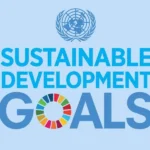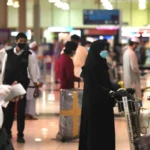The first-ever Islamabad Security Dialogue (ISD) was held in Islamabad on March 17-18, 2021, under the National Security Division of the Government of Pakistan, in collaboration with various think tanks. Sessions were devoted to comprehensive national security, economic security, human security, regional peace and security, and the evolving world order and Pakistan. Luminaries included a former American ambassador, federal ministers, and politicians from across the political divide and academics. Prime Minister Imran Khan addressed the inaugural session, whereas Gen Bajwa spoke at the opening session. Foreign Minister, Shah Mahmood Qureshi also participated as a keynote speaker in one of the event proceedings.
The Good
What was good about the event was that it widened, enhanced and updated Pakistan’s age-old approach to national security. Our usually narrowed perspective of looking at things via a security prism seems to have been acknowledged in its redundant and outdated approach. Much of this change has to do with the focal person that this conference was clearly the brainchild of, Dr Moeed Yusuf. Dr Moeed Yusuf is a straightforward, blunt and outspoken researcher. He never window-dresses or fluffs items that might seem sensitive to address, rather gets to the underbelly of the problems and seeks to advocate simple and lasting solutions. His vision of bringing Pakistan’s approach to national security in the 21st century can be felt throughout the conference. The panel selection on various days elucidated this change with the involvement of some of Pakistan’s top academicians and business people like Dr Huma Baqai, Ms Amber Shamsi, Mr Ali Jehangir Siddiqui and Dr Akbar S Ahmad. This spoke volumes of the undercurrents of change visible in the approach to the theme. Had this security conference been held a decade ago, we would only possibly have seen the involvement of serving and retired army personnel and MOFA representatives. The inclusion of young thinkers and talent and those of important women speakers like Dr Shamshad Akhtar and Dr Sania Nishtar ticked the women participation box as well, making the dialogue more cohesive and inclusive in its approach.
Furthermore, the widening of the scope of what we think of as National Security meant that we had talks on topics like Climate Change, Technological Evolution, Culture and History (indirectly in Dr Akbar S Ahmad’s talk). All these were a welcome change and a refreshing take on our attempt to redefine national security moving forward.
The Bad
Even though women were involved in the conference, notable personalities like Maleeha Lodhi and Nighat Dad were missed. This is perfectly exemplified during the session’s 1,2 and 4, where there is only one woman speaker, as opposed to 4-5 men. A small tweak could have been to hold a session entirely hosted by women and which would have had women speakers and panellists only, possibly discussing the importance of gender in policymaking, national security and diplomacy.
Another aspect where a change could have been made was perhaps to dedicate a complete session on cybersecurity, big data, social media and language weaponization in information space. Here, some notable names in digital media could have been included, as well as academicians and scholars studying this field. This is an arena and a discipline where Pakistan is still lagging behind the rest of the world. It would have been wise and forward-thinking of the organisers to include cybersecurity in the new definition of national security because data is the new oil, the new stock market and the new focus and Pakistan is still to build its capabilities in the field. The only speaker who talked about this topic was Mr Ali Jehangir Siddiqui and it was not enough. The rise of the Internet of Things (IoT) and 5G technologies mean that the world is again advancing in the field of Artificial Intelligence (AI), whereas Pakistan might still be at least 50 years in the past. This has significant impacts on national security, as the more data is available online, the more vulnerable our state is.
Next, a session should have been kept on the importance, role, and evolving nature of blocs and international organisations. With Brexit, the sustainability and importance of organisations like the European Union and United Nations are now facing immense criticism. Pakistan could have significantly played on this theme because the UN has done close to nothing about the atrocities being committed in Kashmir, even though our Premier has taken the issue up on the floor of the UN. Will blocs and organisations be relevant in terms of international security in the 21st century? The dialogue could have addressed it. It could also have used that session to stress the importance of regional blocs that we could make with Afghanistan, China and CARs via CPEC. This topic was talked about by various panellists, though not under this umbrella.
However, civil service voices were absent for more hands-on and grassroots-level analysis. Maybe a session could have been kept which included speakers like Hamza Shafqat and Amna Baig, where they could have talked about how the civil services view national security and what they do to make the situation better on the ground. They could also have spoken about youth involvement in civil services and how we must include the nation\’s youth in this changing dynamic of national security so that our new policy penetrates at the level where our new leaders of tomorrow could also be exposed to some of the ideas being discussed.
Lastly, a few panel choices were a bit confusing, some speakers on some sessions did not go with the topic being discussed or the other panellists. The best examples of this were during session 3, where Dr Sania Nishtar and Dr Faisal Sultan lead the discussion about health and Malik Amin Aslam discussed climate change. The last speaker, Mr Ihsan Ghani’s topic and expertise did not fit the discussion, as he steered the debate back to the age-old notion of security: terrorism. This session could have benefitted from the involvement of an urban city manager who could have talked about how to make our urban centres and cities more sustainable and efficient. It could have had someone talk about the importance of changing our education system or even someone who could have discussed plans for Pakistan to develop recycling plants.
Similarly, Akbar S Ahmed’s session could have entirely focused on the importance of heritage, linguistics, and culture in national security, because it is strongly felt that we are losing an important part of our identity by not holding on to, maintaining, and popularizing our language, history, and culture, Just like Mr Ahmed pointed out. A session on this could have made preserving our heritage, history, language, and arts an important part of protecting and owning up to our identity, as a part of our national security and patriotism.
Conclusion:
Overall, the 2-day dialogue was a great initiative, it can be seen developing into a longer and more encompassing conference, as time goes on. Hats off to the organizers and the panellists for starting a discussion on this important topic and shifting Pakistan’s focus from strategic depth to geo-economics and national-interest-driven policies. It is about time Pakistan thought about itself first, rather than play continues to be the pawn in other superpower’s power games.
Mishaal Mariam Moeen, an author and mixed media artist, expresses her creativity through written words and visual art forms.





Add a Comment